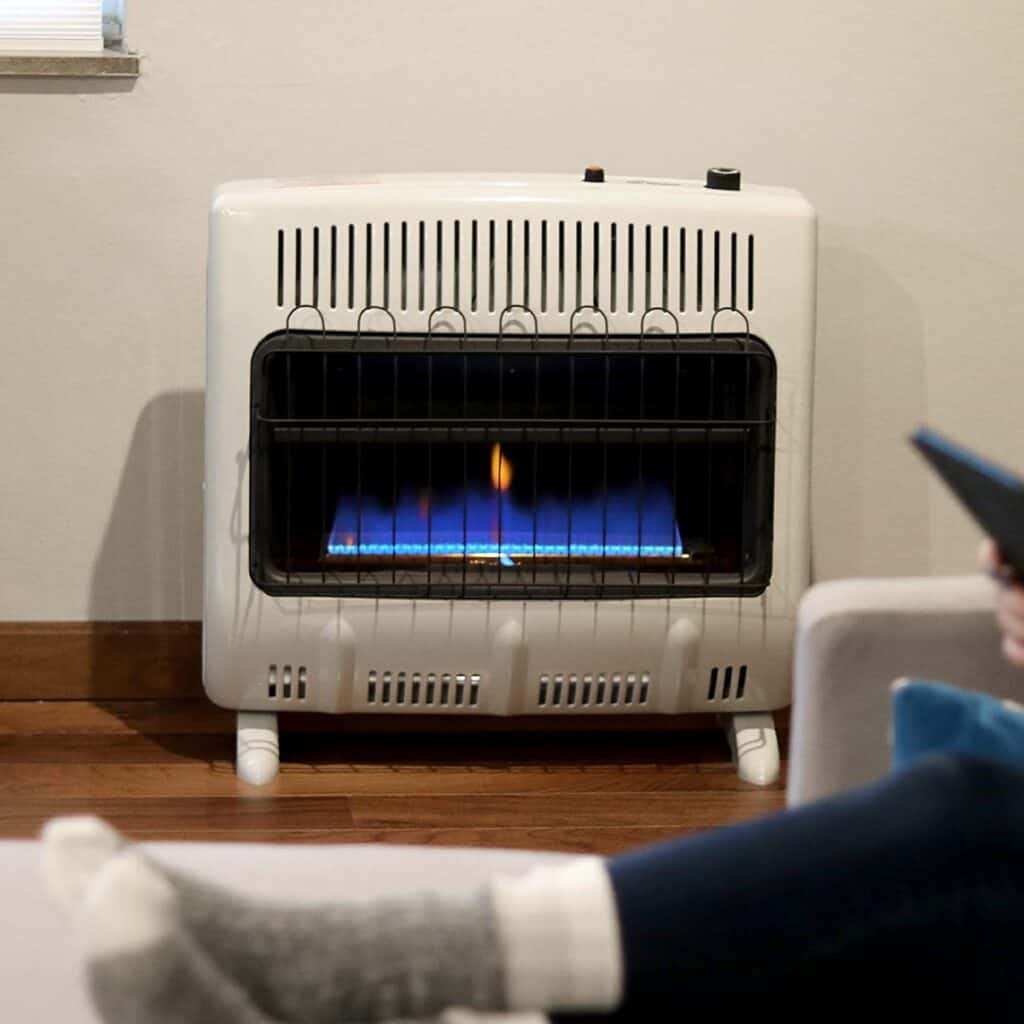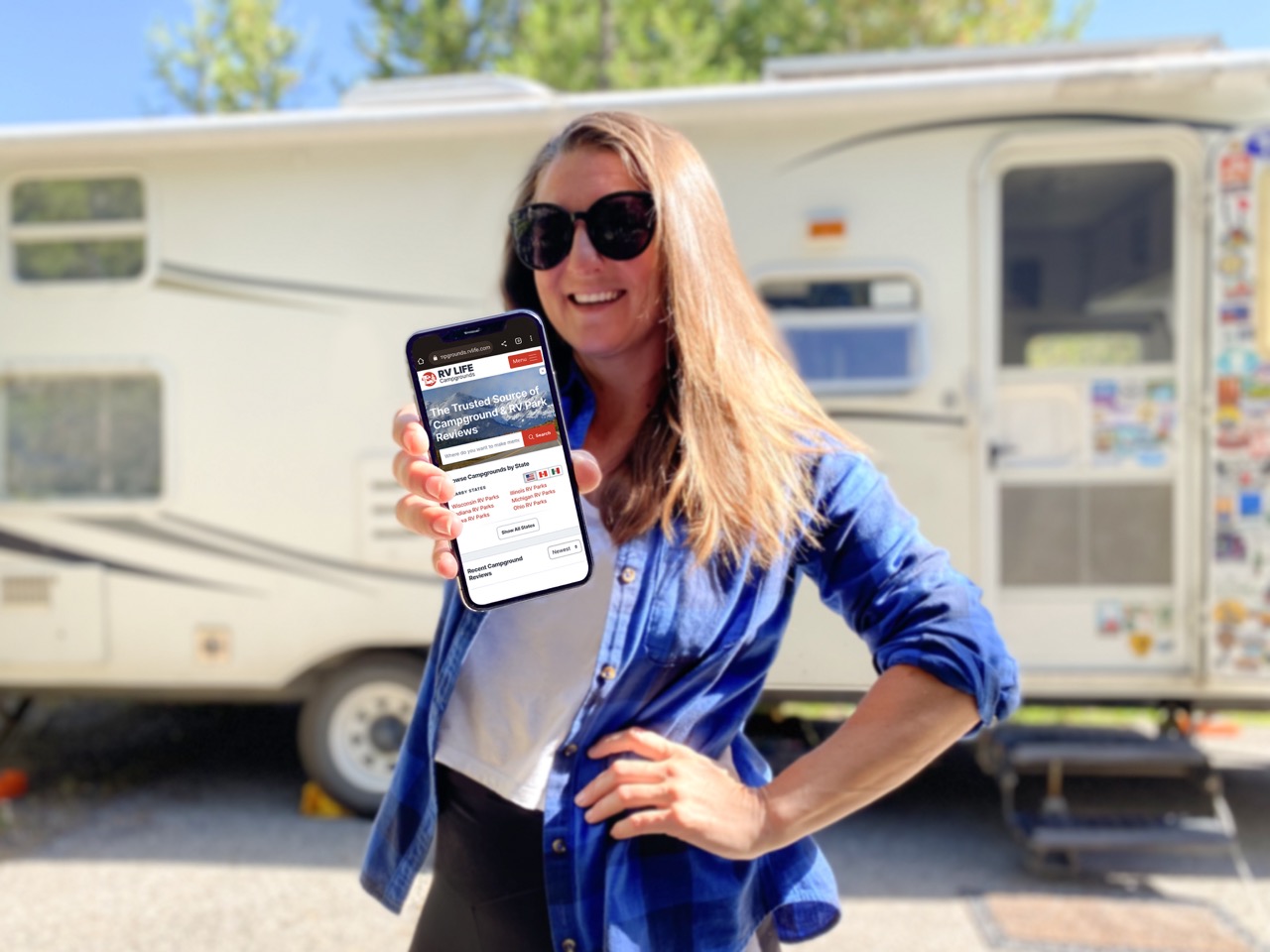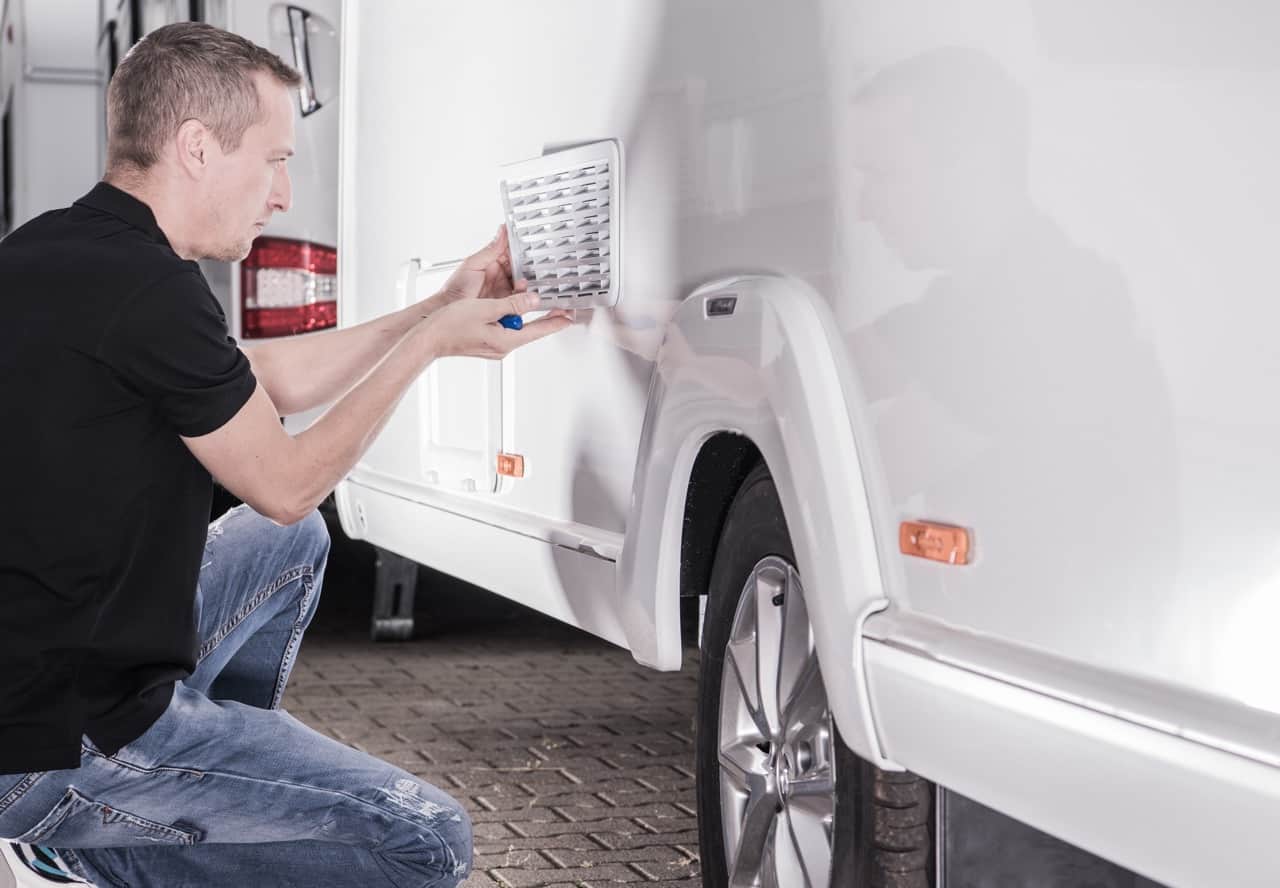
Can You Use A Blue Flame Heater In Your RV?
Many RVs use heat sources that are powered by propane. Blue flame heaters are a popular choice, but it’s important to know the safety risks of any heating source you bring into your RV. These heaters are powered by propane or natural gas and ignite with a physical flame.
In general, blue flame heaters are a safe choice for RVs because they are portable and they burn off any potentially dangerous fumes. They heat the air inside a space but not any surrounding objects. You’ll want to make sure you have a well-insulated RV to get the best results out of your blue flame heater.
However, there are a few drawbacks and risks that you need to be aware of before you select this type of heater for your RV. We’ll go over the pros and cons below, as well as some alternative heating methods you may want to consider.
Benefits of blue flame heaters
Blue flame heaters are popular and for good reason! Blue flames burn hotter than red or yellow ones, so you can rest assured that these heaters will produce a nice level of heat. They are also quite sleek and attractive-looking. The clean blue flame can make any space look luxurious. Many people enjoy the effect of real flames in their heaters, so this is a great way to achieve that look.
These heaters are also quite safe! Many of them are designed to be portable, so they work well for RVs, boats, or other vehicles with a built-in living space. Most models are ventless, so you don’t need to go through a complicated installation process to integrate it into your RV.
Most blue flame heaters use propane as their fuel source. Since most RVs have propane tanks and fuel lines built in, this is a convenient solution. You just need to hook up the heater to a fuel line and let it get to work. Heaters like this work by burning off the fumes as they are released.
This means that there won’t be any propane leaks in your RV when the flame is on. Just be sure to switch the fuel line off or leave a small pilot flame running when the heater is not being used. This prevents fumes from building up and igniting the next time you turn the heater on.
Risks of blue flame heaters
Of course, there are also a few risks that need to be covered. As wonderful as blue flame heaters are, anything that involves gas and fire can create a dangerous situation. These heaters are designed to burn cleanly without any lingering fumes or toxic byproducts. But accidents can happen, and the gas might leak into your home if the flame goes out.
For this reason, it’s a good idea to have a functioning carbon monoxide detector in your RV. Make sure this always has batteries and an alarm that you will be sure to notice.
The gases that are used to power blue flame heaters may not have a strong smell that you can detect by yourself. If you’re outside the RV or sleeping when the buildup occurs, you won’t notice it happening. A good detector and alarm can be life-saving for you and your RV!
Be cautious if these alarms go off. Cut off the fuel lines, open doors and windows, and exit the RV as soon as possible. It may also be a good idea to call the fire department to help you make sure the fire hazards are dealt with safely.
These risks of gas and ignition are minimal, but everyone needs to be aware of them if they plan on using a live fire to heat their RV. Speaking of which, let’s talk about the effectiveness of these heaters.
Should you use a blue flame heater in your RV?
Unfortunately, the main drawback of these heaters is that they may not be the most effective choice for an RV. Although the fire itself is nice and warm, it heats the surrounding air instead of a surface that can retain and distribute heat. Some RVs are notorious for having poor insulation, so a heater that operates like this isn’t always practical.
You could end up losing a lot of heat and paying extra money for the propane. If you plan on camping during the cold seasons, you may want to consider an alternative heat source that will be more effective. At the end of the day, blue flame heaters are generally quite safe, but they’re not always the most efficient sources of heat for an RV.
Alternative heating methods
If you need to warm your RV up, there are other ways to do this! You can still use propane to power your furnace and A/C system, but sometimes you need to take other measures to make sure you stay nice and warm. Try using the tips and alternative heaters below for a better experience.
Improve insulation
First of all, focus on improving the insulation of your RV. Almost all of your heaters will be more effective if your walls, doors, and windows have more insulation. You won’t be losing heat and can build up a toasty interior.
To improve insulation, you can replace the windows with double-paned versions. You can also cover the windows, doors, and vents to conserve heat. RV skirting is a popular option as well.
Electric space heaters
Electric space heaters work in a similar way to blue flame heaters but without the risk of a live flame/gas. You will need to be hooked up to power to use them, so they may not be able to function 24/7. However, they are a great way to warm up a small area, especially if you have good insulation.
Oil heater
Oil heaters are another good alternative. They function by heating up the oil inside and distributing the heat in a safe and steady way.
The oil is not flammable, and this type of heater is pretty good for RVs because they can push the heat out pretty far. Some models can be a bit large, so keep that in mind.
Radiant heater
Many people use radiant heaters if they don’t trust blue flame heaters. Radiant heaters use infrared light to heat themselves up and reflective panels to push the heat outward. These can get very hot very quickly, so they can be a fire hazard.
Make sure to give them plenty of space and remove anything nearby that may be flammable. These models can quickly heat up a small space but won’t always be enough for a large RV.
Blue flame heaters are usually quite safe, but you have plenty of alternatives if you’re looking for something that suits your RV better.
See what other RVers are saying
One of the best parts about RVing is engaging with the community of traveling enthusiasts. iRV2 forums allow folks to chat with other RVers online, and get other perspectives on everything RVing, including products, destinations, RV mods, and more.
Related articles:





I am not an rv’r nor an engineer of any specialty so pardon my criticism but there were a few points here that I do not think are explained well. The name “oil heater” threw me off. I use oil-filled radiators often but in a list of heaters that includes combustion I first though you meant some heater that burns oil. My phrase would be “oil-filled, electric heater. My “advice” would be that electric radiant heaters should not be used in the confined spaces of an rv, possible exception being a bathroom.
I love your country. Used to live on a mountain overlooking the Pend Orielle River near Priest River. Always good memories!
Happy Holidays,
John Tyson
Washburn, ME &
Saint James, NY
They make a valve that goes in main Propane tank Valve and will shut gas off if CO2 is sensed. This should be a standard install in RV world we live in.
Your article on blue flame heaters isn’t necessarily right first and foremost the unit has an oxygen depletion system built in and if for any reason the flame blew out the thermocouple in the unit would sense no heat and shut the gas coming into the unit off and also blue flames make moisture which you also didn’t state im talking about a quart an hour which if not monitored could also cause problems. And also calling the fire dept is not a good idea because they will tell you they are not safe ive sold unvented heaters for 40 years and people that don’t know anything about unvented heating will also tell you how unsafe they are for inhaling fumes and the people that are the doomsday people are the factories that make only vented units I sold unvented heaters when they were illegal in every state and fought to get them approved there great if there used in the proper way.
I have used one of these heaters since 2015 to heat my 40′ 5th wheel all winter. I have an Empire brand. They have ones that are made in the US as well as overseas. Mine is a US made version. I’ve added the base so it’s freestanding and the 120v blower. Living in Colorado winters can get very cold. Typically I’ll use 22-25 gal per month for the heater and hot water. That is roughly a 100lb tank per month. I’ve tapped into the propane system where it enters the kitchen slide. There are different propane lines for indoor and outdoor use.
I used one of these heaters for 3 yrs in my 1996 31.5ft 5th wheel, full time, in Central Canada. Yes, in -45 many many times, especially last winter.) My trailer is skirted(plywood & styrofoam) and on a permanent location. My heater was a Mr Heater 20000 btu blue flame propane, with thermostatic control. It worked/works Awesome. Price was right (under $300) . I had 4-100 lbs tanks that I kept rotating, and would go in and get 3 filled once I was on the last one. The only thing that I found out is that the ventless blue flame heater puts out ALOT of moisture (have read 1.6 lbs water for every 1 LB propane, if that is possible) and as you know, moisture is NOT good for an RV. So the last 2 seasons I have ran a 40 pint dehumidifier, and that kept the moisture in check, as well as made alot of water for cleaning/toilet/etc (Not for consumption) so that was a Bonus. Just wanted to stress the point about the moisture.
This year I have installed a mobile home approved, small Wood Stove, with a Glass Door, Proper double wall stove pipe, and insulated Chimney, outside air intake, and absolutely LOVE IT. Moisture down to around 17-20%, and no condensation on windows, etc. Even with a small fire, I usually have to keep a window open as it is too hot. (i have access to all the wood I can cut). I still have my Blue flame heater hooked up, and leave it on when/if I am gone for the day or two, to keep the trailer at temperature/from freezing. I use my fresh/black/grey water tanks and plumbing all year round. (Installed 2 -4 inch ducts with fans blowing into my basement area for my tanks/pump)…My Trailer is very well built and insulated (which is why I am hesitant about upgrading) Just my experience with Blue Flame Heaters. I also have 2 smoke alarms, and 3 CO2 Alarms, as well as 2 propane detectors in my trailer (Yes, a bit paranoid. Better safe than sorry) Have NEVER had a CO2 detector or Propane detector go off with a blue flame heater.